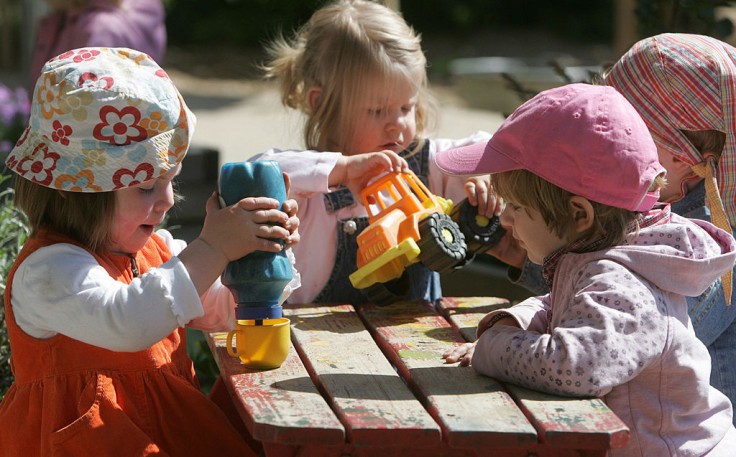
Language development plays a pivotal role in a child's overall growth and cognitive abilities.
As a parent, you have a significant impact on nurturing your toddler's communication skills.
By implementing proven strategies, you can create an enriching environment that promotes effective communication and language acquisition.
In this article, we will explore ten strategies that are backed by research and experience to foster your toddler's language development.
10 Proven Strategies to Foster Your Toddler's Language Development
Engage in Frequent Conversations:
According to the Raising Children Organization, one of the most effective ways to enhance your toddler's language development is by engaging in frequent conversations. Talk to your child throughout the day, describing activities, objects, and experiences. Use simple and clear language, allowing them to grasp new words and sentence structures. This continuous verbal interaction encourages them to respond and participate actively.
Provide a Language-Rich Environment:
Create an environment that exposes your toddler to a variety of language stimuli. Surround them with books, puzzles, and educational toys that promote language development. Label objects around the house, such as furniture, toys, and household items, to associate words with their visual representations. Expose your child to different languages and cultures through music, videos, and diverse social interactions.
Sing and Rhyme:
As recommended by Arizona Early Childhood, singing nursery rhymes and children's songs is an enjoyable way to enhance language skills. The rhythmic patterns and repetition in songs help toddlers recognize sounds, syllables, and words. Encourage your child to join in and sing along. Additionally, introduce hand gestures or actions that accompany the lyrics, as it reinforces their understanding of the meaning behind the words.
Use Technology Wisely:
In today's digital age, technology can be a useful tool for language development if used wisely. Select interactive apps or websites specifically designed for language acquisition. These resources often feature games, puzzles, and activities that promote vocabulary, sentence structure, and phonetic awareness. Supervise your toddler's use of technology to ensure a balanced and beneficial experience.
Limit Screen Time:
Excessive screen time can hinder language development in toddlers. While occasional educational programs or interactive apps can be beneficial, excessive use of screens replaces vital face-to-face interaction. Set reasonable limits on screen time and engage in interactive activities instead, fostering social and language skills.
Read Aloud Every Day:
According to Parenting Science, reading aloud to your toddler is an invaluable activity for language development. Choose age-appropriate books with colorful illustrations and captivating stories. As you read, emphasize the words, ask questions, and encourage your child to repeat phrases or identify objects in the pictures. This practice stimulates their vocabulary, comprehension, and listening skills.
Encourage Pretend Play:
Pretend play allows toddlers to imitate real-life situations and expand their vocabulary. Encourage your child to engage in imaginative play, providing them with props, costumes, and pretend scenarios. Participate in their play and introduce new words or concepts that relate to the scenario. This enhances their understanding and expression of language while fostering creativity and problem-solving skills.
Expand on Their Language:
When your toddler starts speaking, actively expand on their language by rephrasing and adding more detail to their statements. For example, if your child says, "Ball," you can respond by saying, "Yes, that's a red ball. It's round and bouncy." This technique, known as recasting, helps your toddler understand how to build more complex sentences and expands their vocabulary.
Encourage Peer Interactions:
Interacting with peers provides an excellent opportunity for language development. Arrange playdates or enroll your child in social activities, such as preschool or playgroups. Socializing with other children encourages conversation, turn-taking, and listening skills. It also exposes them to different speech patterns and vocabulary, contributing to their linguistic growth.
Celebrate and Encourage Efforts:
Lastly, celebrate your toddler's language development milestones and encourage their efforts. Positive reinforcement and praise go a long way in building their confidence and motivation to continue learning. Acknowledge their attempts to communicate, even if they make mistakes or struggle with certain words. This positive environment fosters a love for language and a desire to keep improving.
Fostering your toddler's language development is a crucial aspect of their overall growth and cognitive abilities.
By implementing these ten proven strategies, you can create a language-rich environment that nurtures effective communication skills.
Through these strategies, you can set your child on a path towards successful language development, unlocking a world of possibilities for their future.
Related Article: Healthy Snack Ideas for Kids: Nutritious Options for Every Occasion